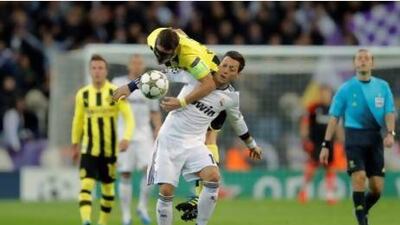Johan Cruyff won the European Cup as a player and a coach, and he once came up with an apt description of what can happen when the modern version of club football's most prestigious competition spreads itself too thin.
He reckoned too many Champions League fixtures were "decaffeinated", and that audiences were becoming blase about them.
The competition has undergone significant reform since Cruyff bemoaned the artificial diluting of a tournament that has had a romance about it since it was launched in the mid-1950s, particularly the elimination of an unpopular second-group phase, before the quarter-finals, but his point remains valid.
The Uefa Champions League is a huge success. It motivates its participants more than domestic leagues or cups and in many cases, more than achievements they might aspire to with their national teams.
But it is also flawed in some of its details, which is why its proprietors, Uefa, will tinker again with the structure of the competition before the beginning of the 2015/16 season.
Uefa's president, Michel Platini, talking to the Ouest-France newspaper last week, answered a question about a possible merger between the Champions League and its orphan cousin, the Europa League, with the suggestion that a format in which 64 teams started the season together on the starting blocks of a single, expanded tournament, might be an idea under Uefa's consideration.
The reaction among professionals has been largely dismissive, even angry. Jurgen Klopp, the head coach of Borussia Dortmund, called the notion "nonsense, the equivalent of uniting the German first and second divisions into one league". Arsene Wenger, manager of Arsenal, said "it would lower the level and could take some interest out of the first stages of the competition".
Karl-Heinz Rummenigge, president of Bayern Munich and a senior voice in the European Clubs Association (ECA), a powerful and persistent lobby group often at odds with Uefa, lined up firmly "against anything that reduces quality for the sake of increasing quantity".
Wenger, Klopp and Rummenigge all speak from a position of current strength. Their clubs go into this week's last matches of the Champions League group stage already certain of progress to the knockout phase.
Indeed, of all the 32 teams who lined up in the eight groups of four in September, only six - Chelsea, Juventus, Galatasaray, Cluj, Celtic and Benfica - have reached the last mini-league match day with the question of progressing or being eliminated still at stake.
That is what Cruyff would call a decaffeinated scenario. Look across the fixtures: suspense is at a premium.
A nostalgic would argue this is the problem with a group phase, that a straight knockout cup, as the competition was from its invention until 1991, makes every fixture relevant. But it was in response to one of the concerns that still preoccupies many prominent clubs in the ECA that Uefa first introduced league formats to European club competitions.
So significant is the income, generated chiefly from broadcasting and sponsorship, that clubs gain from participation in the Champions League they are bound to regard a minimum of six matches in it - at the group stage - as preferable to the possibility of just two, which a home-and-away knockout format risks.
The downside is the kind of stagnant fixture list that looms this week, and indeed, is also a feature of the final matches of the Europa League's 12 groups, from which 19 out of 24 qualifiers for the next phase are already known.
Platini worries about the Europa League, and rightly.
Despite its size - 48 teams lining up in it each September - it brings in less than 25 per cent of the income of the Champions League and cannot help but be regarded as an overflow tank for wastage as long as teams finishing third in their Champions League groups fall into the Europa League in the new year.
That mechanism was put in to generate more suspense in weeks like this. It has not served to add lustre to the Europa League, which for clubs in the wealthier national leagues ranks as a lower priority than domestic football.
Platini would argue that a big Europa League helps make all of Europe more competitive, and that a broader base of experience in Uefa tournaments means new challengers to the elite emerge.
He would point to a Europe in which a team from Belarus - BATE Borisov - can beat Bayern, Celtic defeat Barcelona and the reigning champions, Chelsea, stand on the verge of elimination in December.
He would reckon events like those show the Champions League has enough natural caffeine in it to stimulate thoughts about how, one day soon, it might get bigger without being blander.
Follow us


